I was quite young when I saw The Incredible Shrinking Man in a movie theater but the film had a profound effect on me. It was the story of Robert Scott Carey, on vacation with his wife on a boat when a weird, shimmering, irradiated mist cloud passes over him. 6 months later he realizes his clothes no longer fit, and as he drastically shrinks in size he goes to a doctor, who tries to find an antidote.
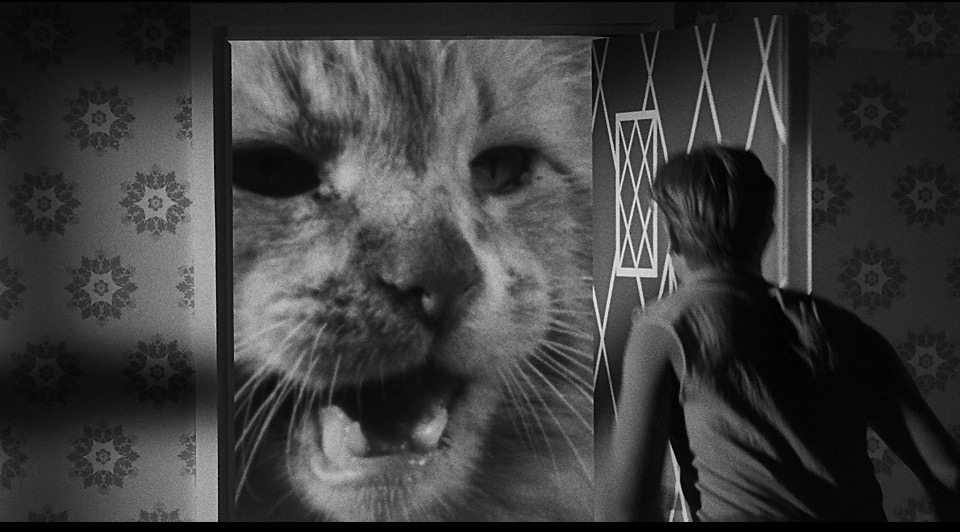
But Carey continues to diminish, eventually pursued by a household cat when he is the size of a doll; accidentally knocked down in the basement which causes his wife to conclude he died.
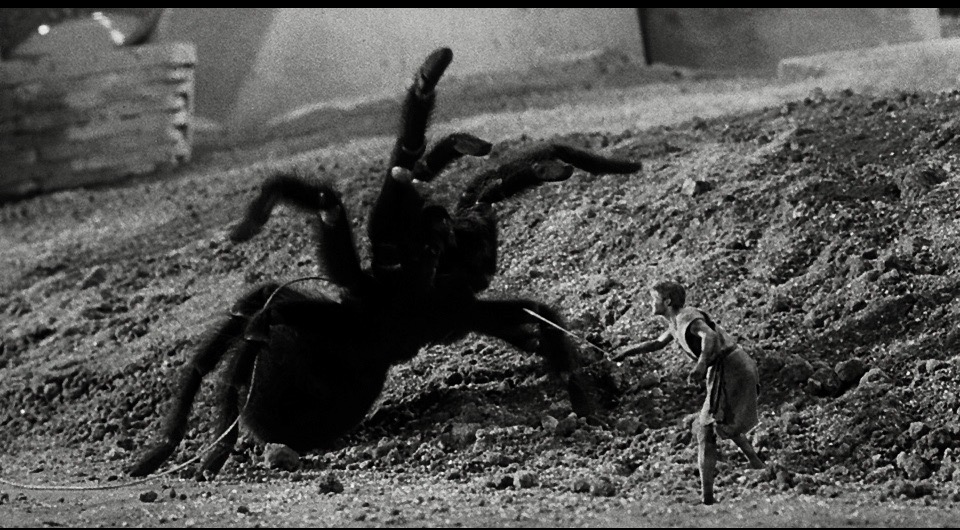
Carey then wars with a frightening giant spider for a moldy piece of cake left by his wife.
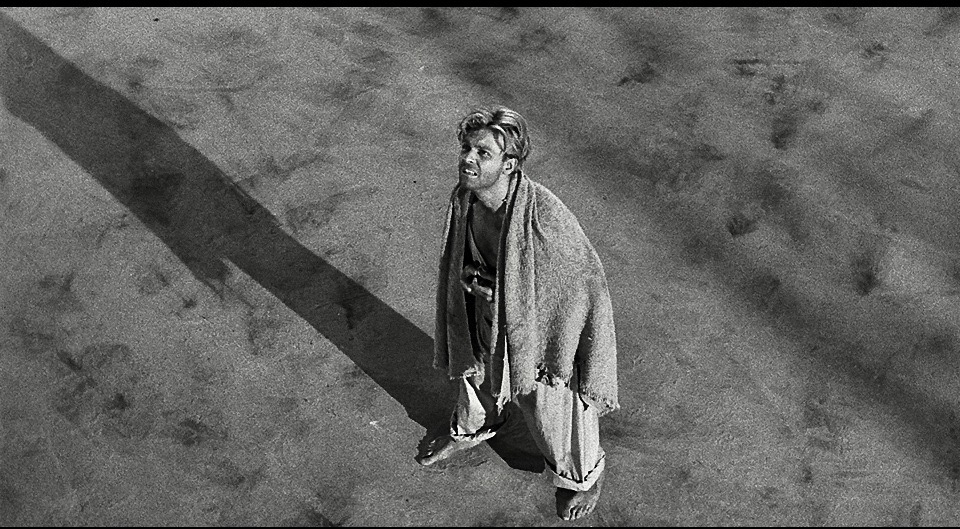
Beautifully directed by Jack Arnold and based on a novel by Richard Matheson, this had the most existential of endings with Carey dissolving into the infinite, coming to a metaphysical realization, “Yes, smaller than the smallest, I meant something too. To God there is no zero. I still exist!” But what really got me was Grant Williams as Robert Scott Carey. It was such a soulful, heroic, and incredibly moving performance. It has haunted me through years of repeated viewings.

I recently read a biography about Grant Williams (who I knew next to nothing about) by Giancarlo Stampalia, and it’s a fascinating portrait of an unheralded, talented actor and melancholic loner, whose career may have fizzled early, but is deserving of this loving tribute. Stampalia had to dig through thousands of press clippings and sort through the hyperbole and pure invention that makes up most publicity in Tinseltown. And because Williams was so incredibly guarded about his private life, the author makes no assumptions about the rumors of Grant’s homosexuality.
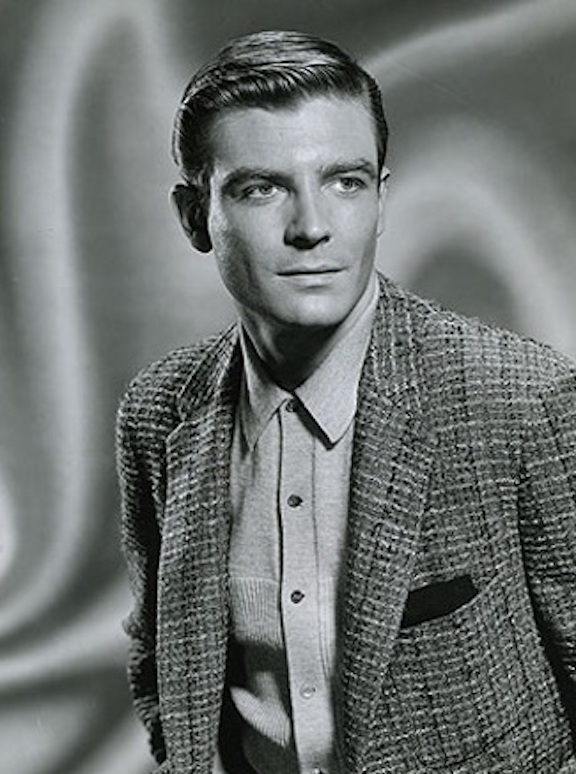
Williams grew up in Queens, NY and early was bitten by the acting bug, performing in many summer stock productions as a boy. He enlisted in the United States Air Force and served from 1948 to 1953. One bogus press clipping said that he fell in love with a girl who was in training to be a nurse and who was killed in Korea. No record of that could be found. But Williams returned to acting. At 21 he won the prestigious Barter Theatre acting award which offered him a salaried summer season performing in Abingdon, Virginia. The judge for the festival was Rosalind Russell. It was an intensive boot camp for actors, with a new play every week and days filled with endless rehearsals and nightly performances. After that he was cast in off-Broadway plays and began to do New York live television. He was called to Hollywood to test for the lead in a projected series that never came into being, but was given a screen test at Universal-International Pictures and was signed to a long-term contract within 48 hours.
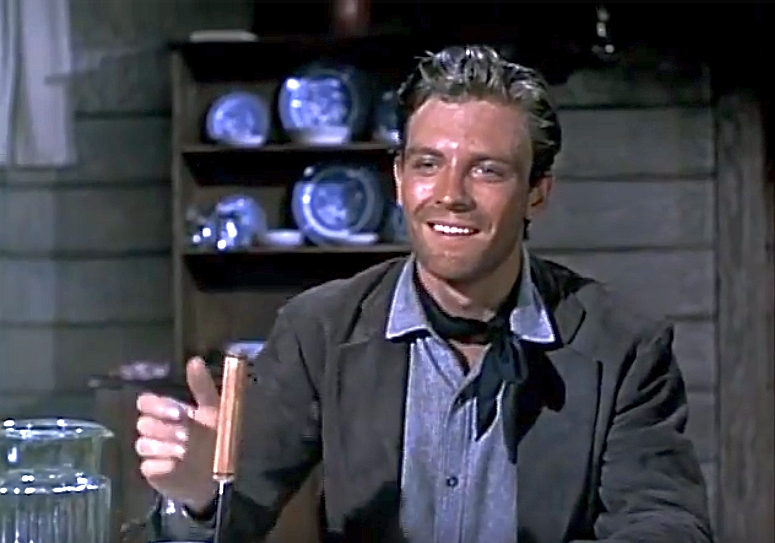
Red Sundown (1956) was one of his first starring parts and he is just electrifying. Unfortunately, this routine color western, starring Rory Calhoun as a deputy for Sheriff Dean Jagger, was a rather forgettable film. Grant shows up 52 minutes in the movie, a stranger knocking on the door of a kindly couple who offer him water and then ask him to sit down to dinner with them. He admits he is a gunslinger working for the villain wanting them off their land. Then he slices the table linen with a knife, knocks over the cabinet with all their china, and, while constantly smiling, informs them they have 24 hours to leave. Eventually he has a run-in with Rory Calhoun and they shoot it out at the end of the film. Williams speaks with a raspy voice and is constantly grinning in a demonic way- it’s the kind of a knock-out performance which reminds you of Richard Widmark’s fiendish killer in Kiss Of Death. You can also see how the director of the film- Jack Arnold kept using Williams in films afterwards.
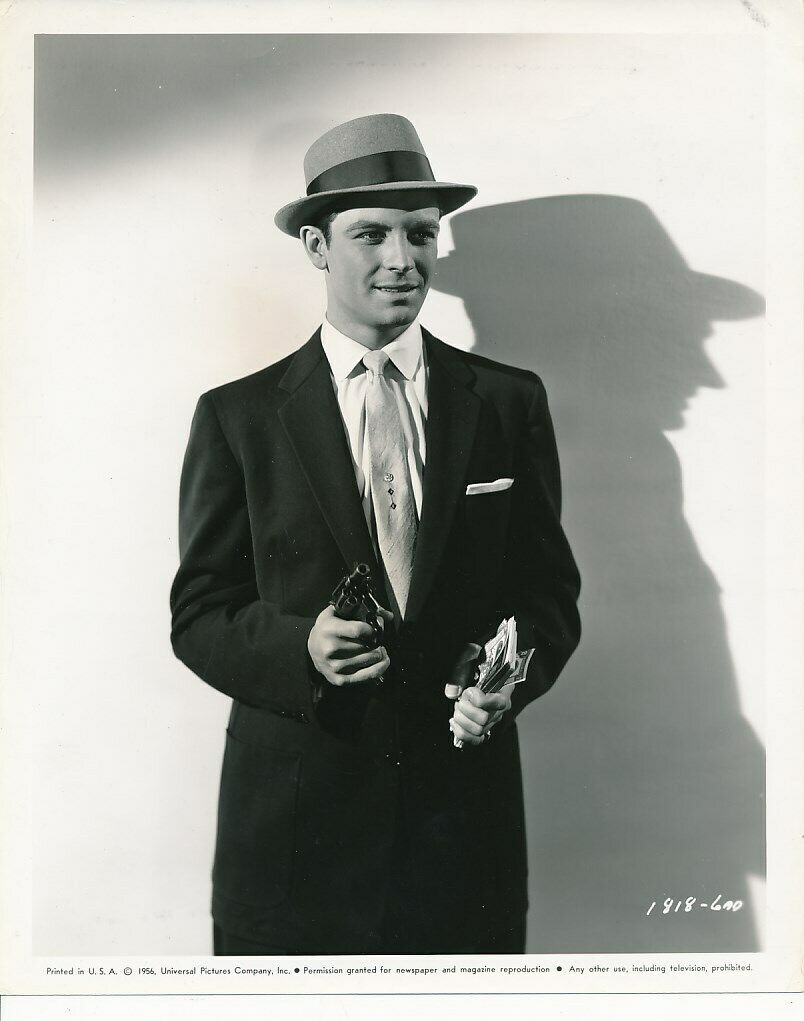
Outside The Law (1956) In fact, director Jack Arnold wanted Williams for the lead in this crime drama about counterfeiters, but the studio insisted on Ray Danton. So, Arnold made Grant Williams the villain in the film. Grant plays an underling for a crime boss (in a smart suit and hat) but his main focus is his psychotic jealous suspicions about his girlfriend. When he assumes she is two-timing him, he says, “Don’t walk out on me, Maria. I’ll kill you both if you do.”
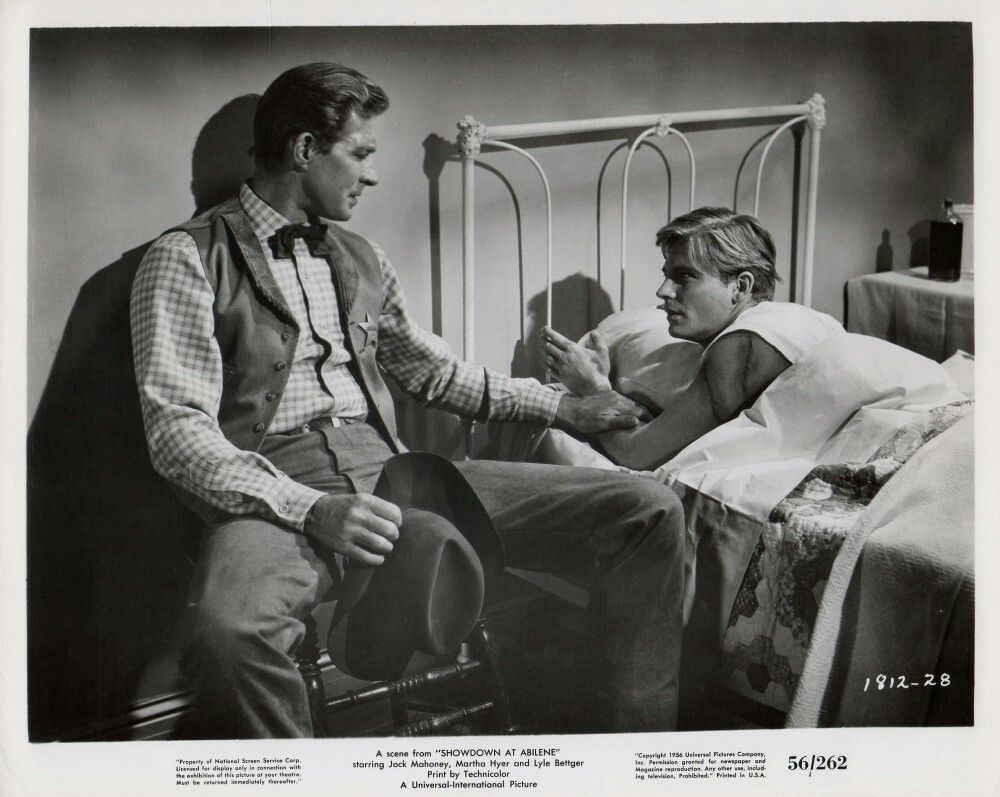
Showdown At Abiline (1956) Grant plays Chip Tomlin, returning from serving for the North during the Civil War. He is coming back to his wife, farm and two-year-old daughter he has never seen. Later in the film he is captured on a neighboring property searching for his stray cattle; tied to a wagon and whipped within an inch of his life.
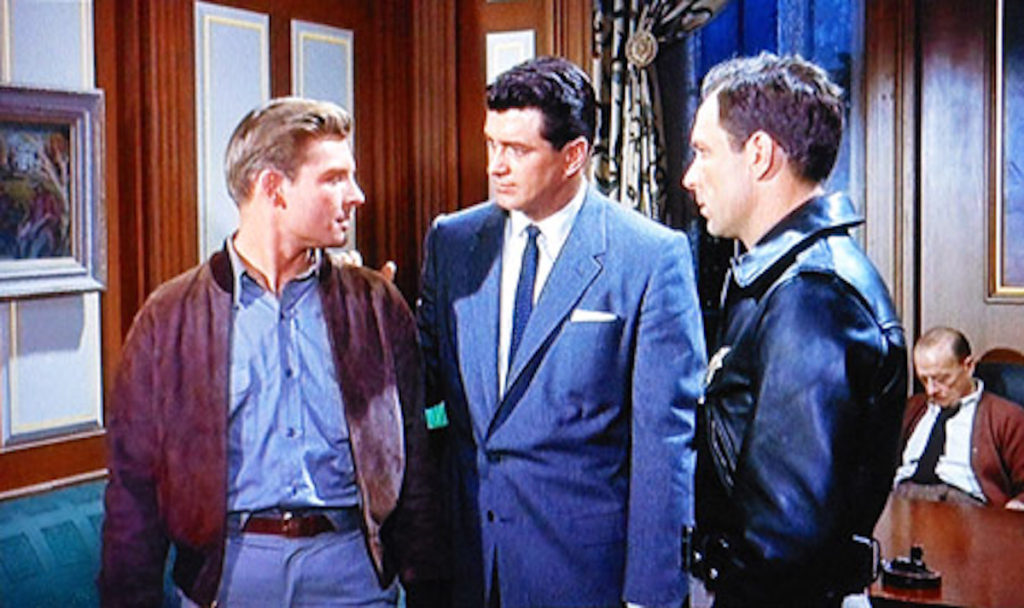
Written On The Wind (1956) At least Grant got to work with the great Douglas Sirk, in this torrid melodrama about the children of a Texas oil tycoon- Kyle (Robert Stack), an alcoholic playboy and his nymphomaniac sister Marylee (Dorothy Malone, who won an Oscar for her fiery performance). Rock Hudson plays Kyle’s long-suffering best friend Mitch, a geologist for the oil company, and Lauren Bacall rounds out the cast as Kyle’s unhappy wife. Grant makes a small but potent appearance as Biff, a sexual conquest of Marylee, who she picks up while he’s working at a gas station. When the police accompany them back to the mansion, Biff informs the father about Marylee’s reputation around town. “Your daughter’s a tramp, mister…”
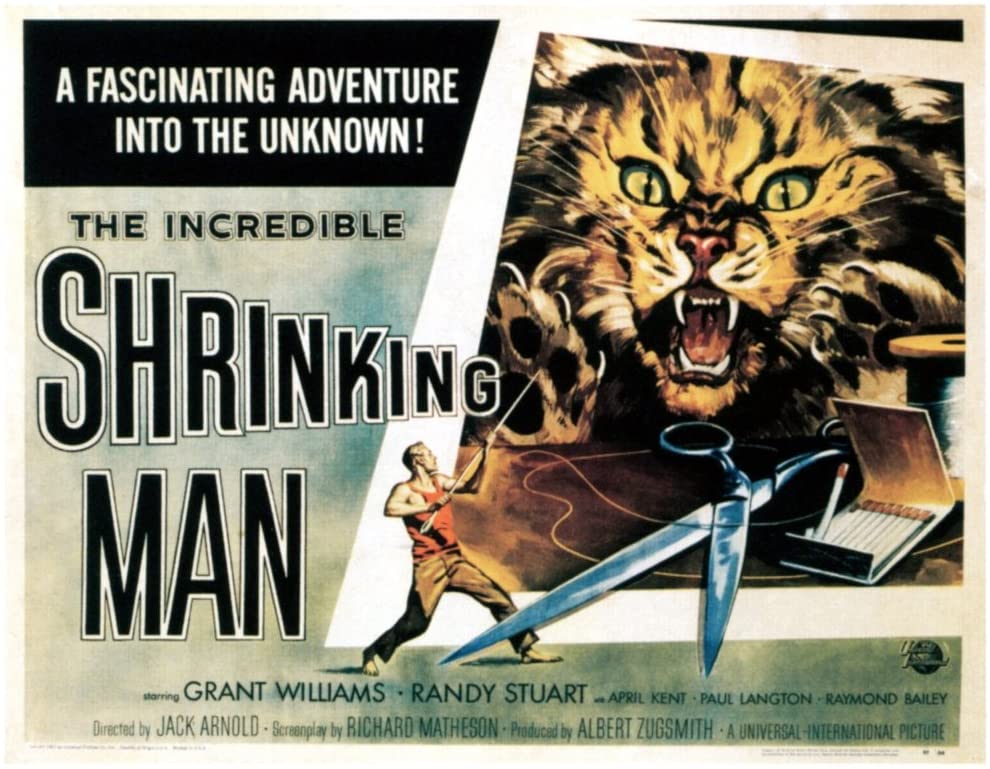
The Incredible Shrinking Man (1957) The film that is best associated with Grant Williams. A gem of a sci-fi film about a man, who, after he encounters a glistening cloud while on vacation, begins to shrink down at an alarming rate. The special effects were pretty extraordinary for the time, but the whole show is Williams’ performance, which is astonishing. Young, blonde, boyishly handsome, he exudes niceness, which makes what happens to him so heart-breaking. “Grant gave a truly outstanding performance,” said director Jack Arnold. The studio wanted the movie to end on a happy note, but Arnold adamantly refused. The darkly poetic quality of the finale is mythic. In 2009 the Library of Congress named the film to the National Film Registry for being “culturally, historically, or aesthetically” significant.
The movie was a critical and financial success, but the physical traumas Williams endured during the making of the film took its toll. The glare of the lamps made him temporarily blind for a week. He also broke a vertebra in his neck and badly burned his shoulder.
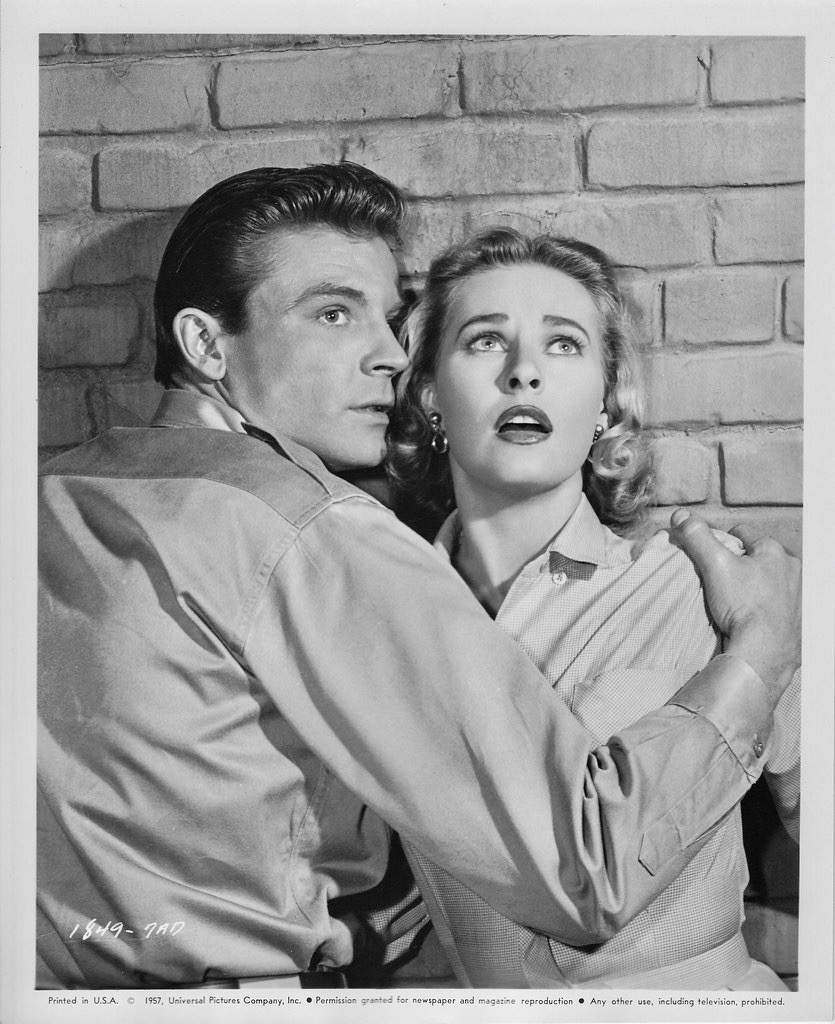
The Monolith Monsters (1957) was not directed by Jack Arnold, but Arnold wrote the story. Williams plays a geologist investigating weird rocks that fell from the sky, littering the desert, that grow to extraordinary heights when exposed to water. Contact with them can also turn you to stone. Williams is reserved in the film but is aided by the lovely and incredibly talented Lola Albright as his schoolteacher girlfriend. Despite the dumb-sounding premise (“the killer rock movie”) it’s actually an intelligent and fun sci-fi flick.
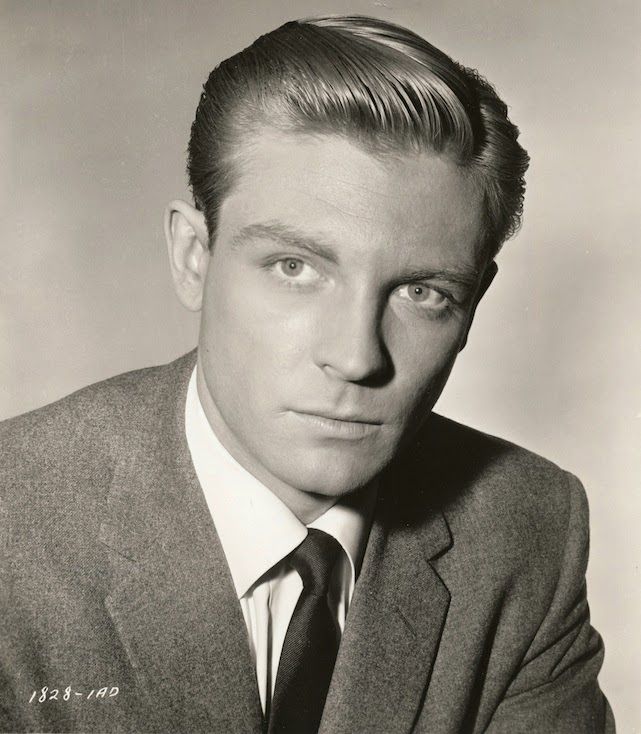
Jack Arnold and Grant Williams remained friends for years. Arnold, in an interview, said, “Grant Williams was one of the best actors around. But the studio didn’t give him the right parts and his career never took off. He had the wrong looks for the time and never caught on with the public.”
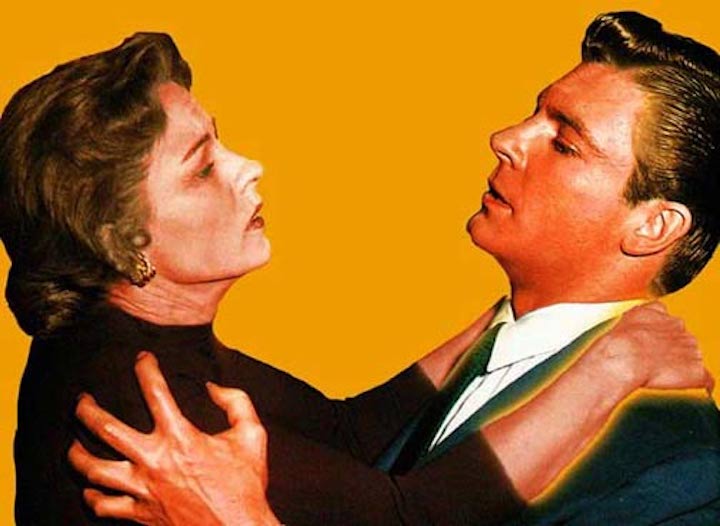
The Leech Woman (1960) was Williams last film for Universal-International before his contract ended. He plays a secondary role to Coleen Gray as June Talbot, an alcoholic, wealthy woman who travels to the jungle to find the secret of eternal youth only to find there’s a catch. You have mix the potion (distilled from a rare orchid) with the pineal gland of a live man. Grant is fine in the movie- there’s definitely a sexual vibe with his conflicting feelings for the newly rejuvenated beauty of June (Coleen Gray) and the sweet charms of his fiancé (Gloria Talbott). But this camp classic is hardly a high point in his career, or a fitting send-off for the star of one of Universal’s highest-grossing films at the time (The Incredible Shrinking Man).
Williams had his contract picked up by Warner Brothers in 1960. The press release announced: “Warner Bros. has signed handsome Grant Williams to a term contract. The young actor has already appeared in two of the studio’s television series: The Roaring 20’s and Surfside Six.”
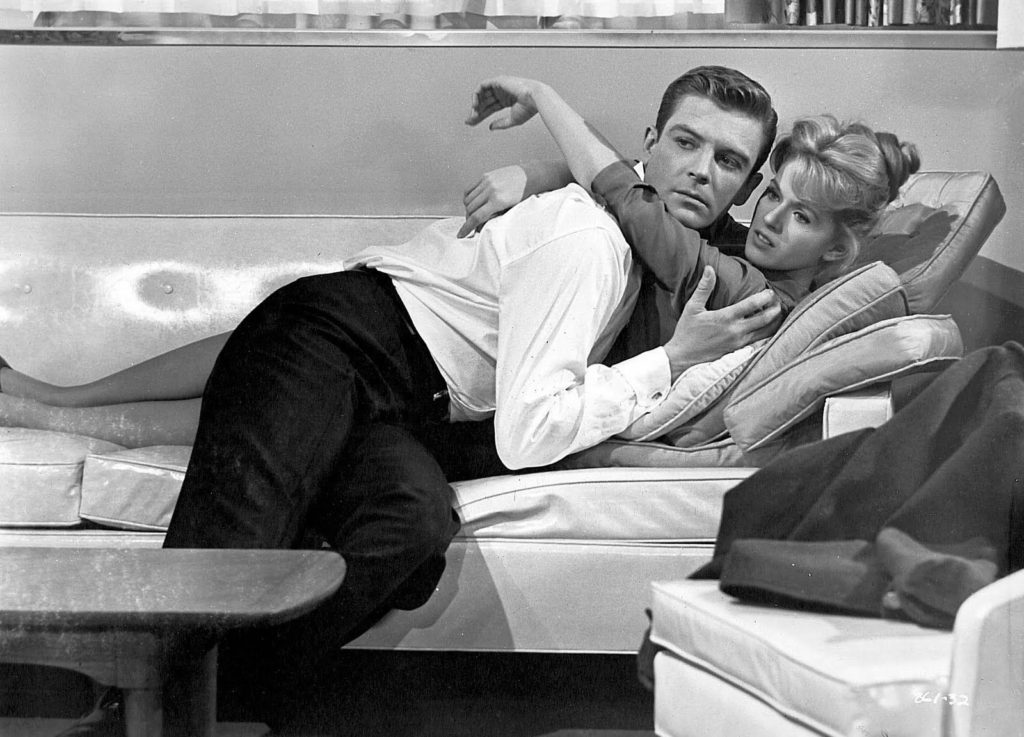
Susan Slade (1961) A fabulously trashy melodrama in which Grant plays Conn, a handsome, wealthy mountain-climber who dates the sweet, virginal Susan Slade (Connie Stevens). When his letters suddenly stop arriving, Susan finds out to her horror that Conn died in a climbing accident. She also discovers she is knocked-up. This Delmer Daves film is a favorite of director John Waters: “I love 1961’s Susan Slade when the baby catches on fire.”
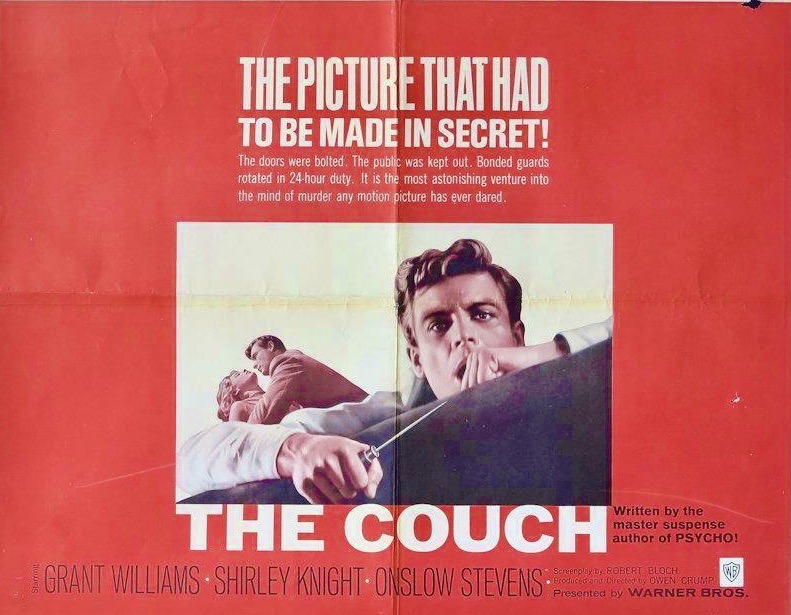
The Couch (1961) Williams gives a sensational performance in this psychological thriller (with a screenplay by Psycho author Robert Bloch). Grant plays Charles Campbell, paroled on a rape charge with the stipulation he undergo psychiatric counseling. But he delights in calling the police to announce that a murder would occur that night at 7pm. He stabs a stranger with an ice pick at 7 and makes it just in time for his appointment to stretch out on his analyst’s couch for his session. He also romances the doctor’s niece (played by the brilliant Shirley Knight) before stabbing the doctor with the icepick and pretending to be a physician to finish the job at a hospital. For the role, Williams used the Actor’s Studio “method” technique by spending many hours with real psychiatrists in preparation. Variety said of his performance, “Williams delivers an agitated, menacing, appropriately unstable portrayal of the crazy figure.”
Grant did a lot of episodic TV work- Mr. Lucky; Bonanza; Gunsmoke; Shirley Temple Storybook. He did a pilot for a NBC western series The Iron Horseman but the pilot wasn’t bought. He also did two excellent Perry Mason episodes.
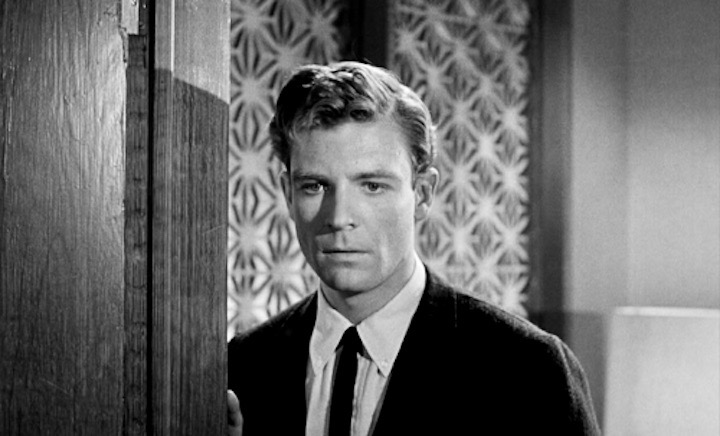
Perry Mason: The Case Of the Ruinous Road (1964). Grant plays the martini-swilling reporter Quincy Davis in this tale about an old woman who refuses a road to be built through her property. When the building engineer ends up dead in her living room a surveyor gets arrested for the crime but someone has a good reason for the house not to be disturbed.
Perry Mason: The Case Of the Battling Bug (1965). Williams plays a scientist working on an experiment with a team who are battling corporate espionage. He is accused of the murder of an investigator when they find the body in his lab while he is standing over it with the murder weapon- a lead pipe.
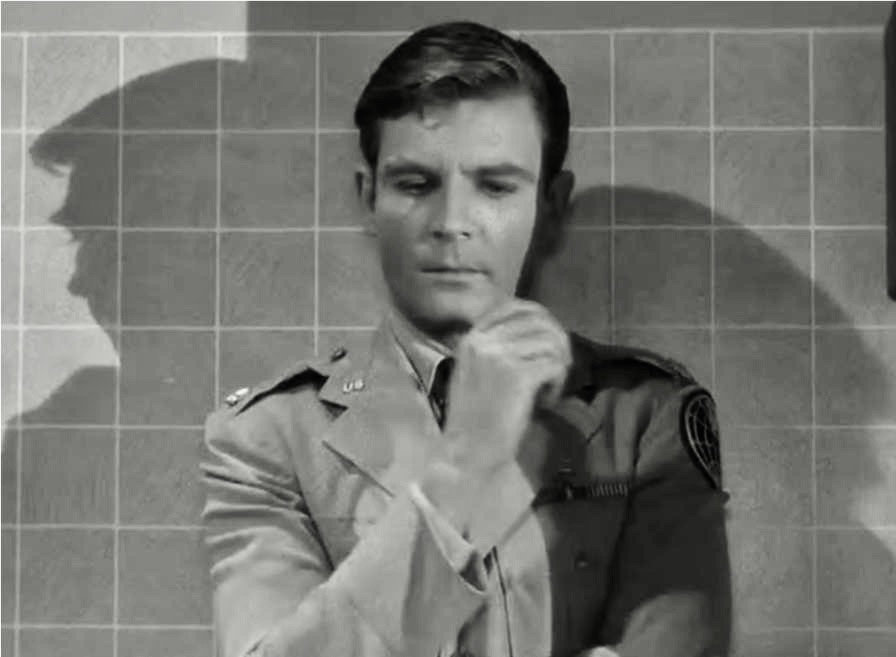
Williams also appeared on the second season of The Outer Limits: The Brain Of Colonel Barham (1965). Anthony Eisley plays a scientist working on a rocket to Mars who is dying. Doctors decide to take out his brain, and keep it alive to help pilot the space flight. Grant plays a Major, conflicted over the moral implications of what the scientists are doing, and worried about the catastrophic outcome. His serious, soulful demeanor helps anchor this talky episode.
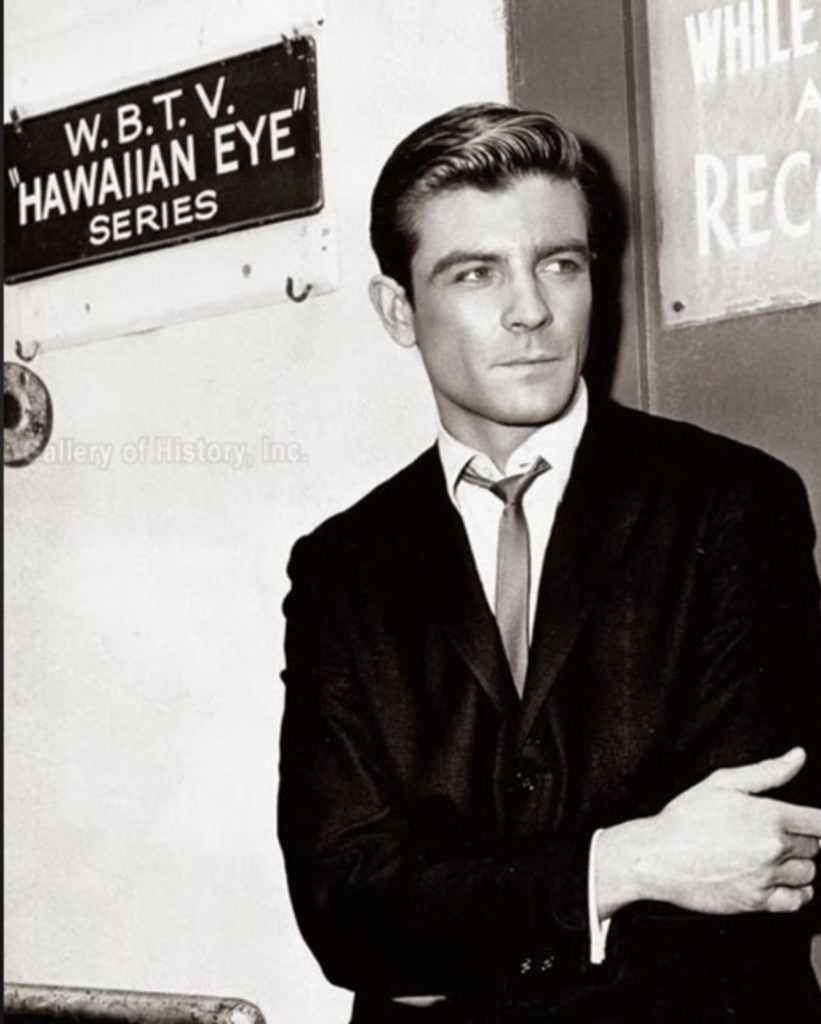
Grant’s big break came when he joined the cast of the popular TV series Hawaiian Eye in the second season. Before Hawaii Five-O and Magnum P.I. this was a popular weekly TV offering about a detective agency and private security firm in Honolulu. Anthony Eisley played P.I. Tracy Steele and hunky Robert Conrad played his partner Tom Lopaka. Williams joined the show as engineer-turned-detective Greg Mackenzie and got to show off his comic talents as the debonair, smartly-dressed, ladies man. This breezy, popular series also showcased a ukulele-playing cab driver (Poncie Ponce), and Connie Stevens as photographer and songbird Cricket Blake. Williams filmed 50 episodes of the series. He also had the reputation for flying into rages on the set, which is possibly why he got suspended from the show. In later years while he was talking with a student in his acting class he admitted regret for saying the wrong thing to the wrong person on the set of Hawaiian Eye while drunk. Another of his students admits he had a reputation as an alcoholic. “He had that look, skin and all. He also looked much older than his age.”
Grant allegedly had a “bitter disagreement” with Jack Webb when he appeared on Dragnet in 1967, playing a priest spending the day at the business office of the LAPD. There were rumors that this caused him to be blacklisted in Hollywood.
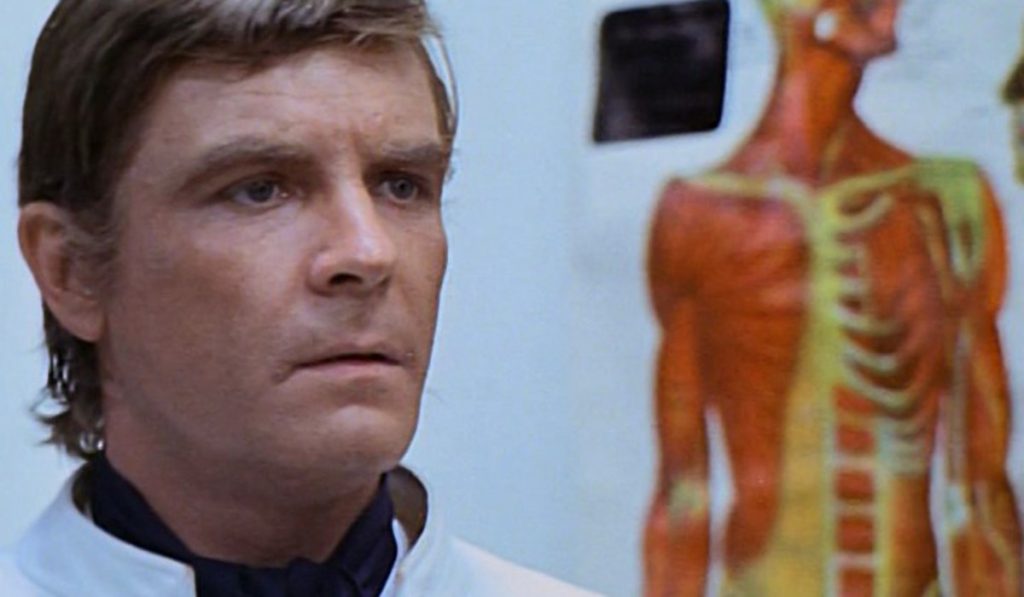
Sadly, among the last features he made was another cruddy wonder from director Al Adamson: Brain Of Blood (1971). It was about a dying Middle Eastern ruler named Amir (Reed Hadley). His body is wrapped in, what looks like, Reynolds Wrap and shipped to America where a scientist (Kent Taylor) removes his brain and puts it in the nearest available body- Gor (John Bloom), a giant half-wit with a face scarred by battery acid. There is a vicious dwarf (Angelo Rossitto), women chained in the cellar, and poor Grant Williams plays the hero who ends up with Amir’s brain in his body at the end of the film. Williams looks pretty rough in the film considering he was about 40 when he made it.
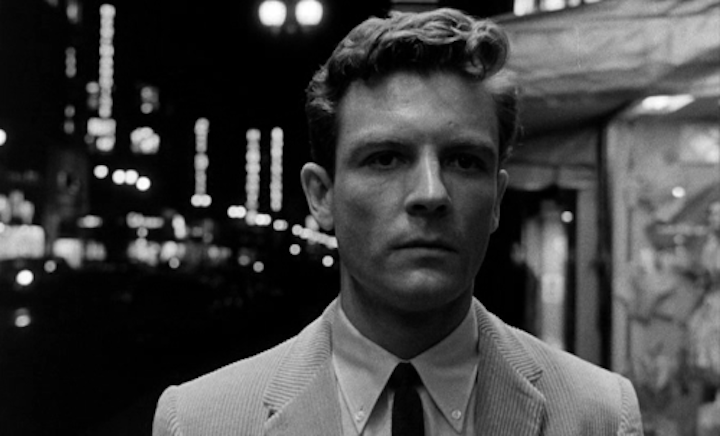
He also made a hard-to-see sexploitation film How’s Your Love Life? (1971) about a sexually free-wheeling theater company. Williams groused to a reporter, “One of my last pictures was edited into a near-porno film. The ads for it suggested that I was playing a character who was gay….I would never play a homosexual.” Rumors about the “confirmed bachelor” followed him, but author Giancarlo Stampalia goes out of his way in his biography to leave that question open. Williams was a devout Catholic which might have made it difficult for him to come to terms with his sexuality, but there are not many first-hand accounts to corroborate that, and many of his acting class students assumed he was straight.
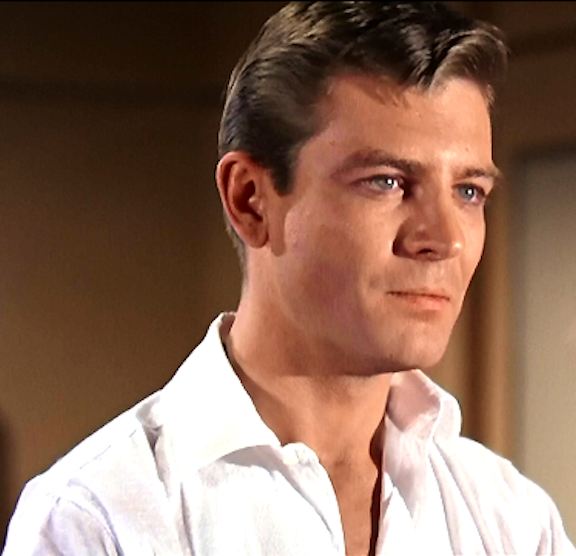
Grant Williams began teaching acting, and the students author Stampalia interviewed said that he took it very seriously. One stated that he was “a brilliant, generous teacher.” According to the students in class he was all business but outside he was very social, attending their weddings and even Thanksgiving dinners. He also loved playing the piano (he was a classically trained pianist). But Melissa Ward, another student of his admits, “he was fundamentally a tragic character. There was a great deal of sadness in him.” In an interview with an LA Times reporter Grant stated, “I have a private life that I think is horrible.”
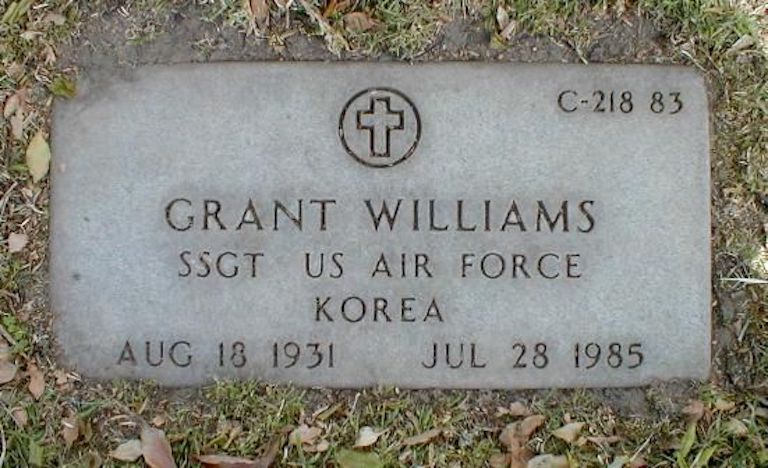
Williams died at the Veteran’s Administration Hospital after being treated for blood poisoning (toxemia). Allegedly his mother’s death a short time earlier might have contributed to a bout of excessive drinking. Williams told a friend that when he flew to New York to be by his mother’s side on her deathbed he asked her if she loved him. She replied, “I hate you.” He was 53-years-old.
He is buried in the Los Angeles National Cemetery and the inscription on his grave reads as follows: (Grant Williams/SSGT US Air Force/Korea/Aug 18, 1931-July 28 1985). The fact that there is no mention of his acting career on his grave is interesting, but not surprising for a man who was modest and rigorously guarded his privacy. In Giancarlo Stampalia’s studiously researched, respectful biography he admits, “Williams was a man with secrets.”

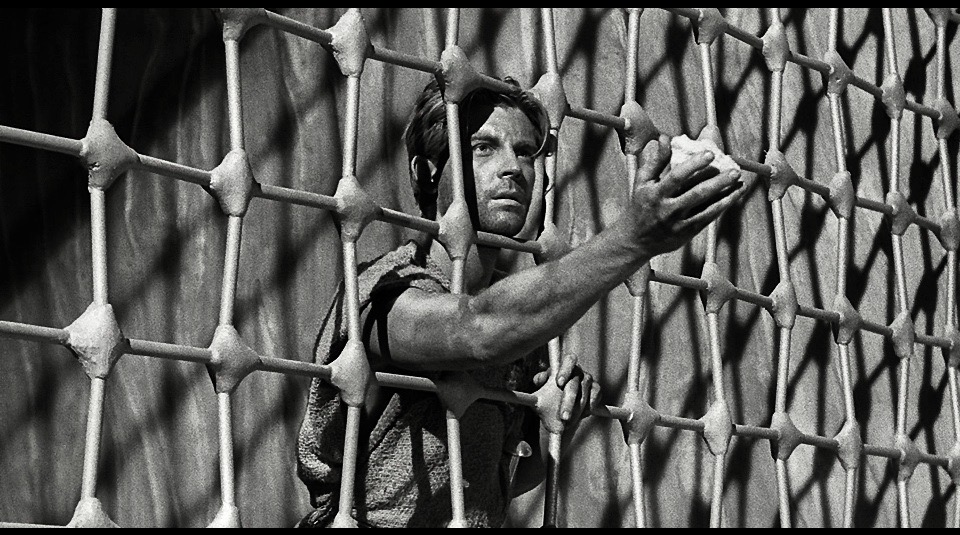
Terrific piece, Dennis!
Loved the Monolith Monsters!
Without a doubt William’s was a Haunted Soul.
You can see it in his eyes on screen.